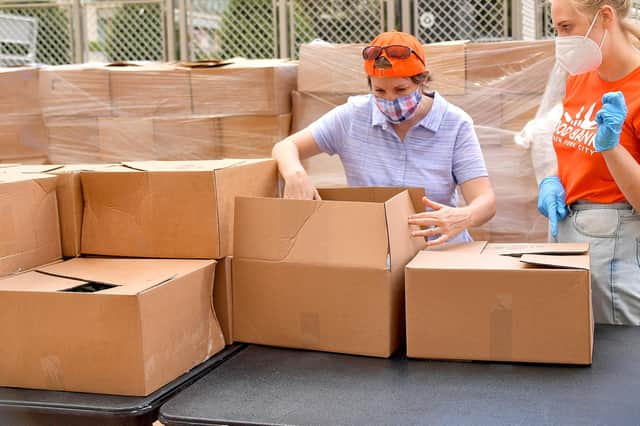Column: Praise for Northampton charities helping people in need at Christmas


This week is UK Charity Week and it’s a chance to show gratitude and thanks for the work of local charities to help support people and create positive social change.
Ideas to do this include their ‘5 a day’ campaign which features suggestions such as introducing five people to a local charity and to make a £5 donation to a charity you care about.
Advertisement
Hide AdAdvertisement
Hide AdCelebrations and shout- outs can be followed on social media platform Twitter using the unique hashtag #UKCharityWeek
In Northamptonshire we have lots of reasons to continue celebrating and saying thank you to the local charities here on our doorstep.
So many of them provided a lifeline during the peak of the Covid-19 pandemic to vulnerable residents and continue to do so.
For example, in the lead- up to the festive season – a time that can be financially stressful for many families on a low income or for vulnerable and lonely residents – local organisations will be pulling out all the stops to provide festive hampers and donated presents to reduce the burden on families at this time. The McCarthy-Dixon Foundation, based in Northampton, has set up an Amazon wish list for members of the public to make a purchase and to help provide presents at Christmas.
Advertisement
Hide AdAdvertisement
Hide AdPeople can also text in a donation or donate food. For further details, you can find out more via their website: mccarthydixon.org.uk or social media platforms
@TheMcCarthyDixonFoundation.
Recent research by the national anti-poverty campaign organisation The Joseph Rowntree Foundation highlights increasing concern around the numbers of citizens finding themselves in debt.
Joseph Rowntree Foundation researchers state: “We find that 3.8 million low-income households across the UK are in arrears, and 4.4 million have had to take on new or increased borrowing through the pandemic.
“Many of these households weren’t in arrears before the pandemic and have faced income loss and increases in their expenses.”
Advertisement
Hide AdAdvertisement
Hide AdA number of recommendations are made, including reinstating the Universal credit £20 uplift, providing grant funding for targeted debt relief, and addressing key drivers of debt through system reforms.
National charities dealing with debt and financial security have spoken out on the stark reality facing many this winter.
The Money Advice Trust, which is a national charity helping people to deal with their debts, released a report earlier this year that found
seven million adults in the UK are worried they won’t be able to afford their council tax in the next year and that arrears levels are at £4.4 billion in England alone.
Advertisement
Hide AdAdvertisement
Hide AdThey are calling for more funding for council tax support and reform of collection rules to help ease the pressure on struggling families and citizens.
Turn2Us, a national charity tackling financial insecurity, evidences from a recent report that 15 million people, which is one in four people, have experienced at least one unforeseen life event in the last two years across the Covid-19 pandemic, which has left people struggling to cope financially.
This has resulted in residents having to make difficult choices between paying bills and food shopping.
We know that falling into financial difficulties and poverty have a massive impact on people’s health and wellbeing, causing stress, anxiety, worry and, more seriously, depression.
Advertisement
Hide AdAdvertisement
Hide AdThe report highlights the measures that people take to cope, from selling off personal possessions, recourse to a foodbank, borrowing money, missing bill payments and taking out high-cost credit loans.
The impact of the Covid-
19 pandemic has affected many people, especially financially. Nothing less than system reform will do.
If the current government is serious about its rhetoric on ‘levelling up’, it will provide a meaningful lifeline and safety net with a properly resourced security system. Anything else simply falls short of what is needed to support a real social and economic recovery from this ongoing public health crisis.